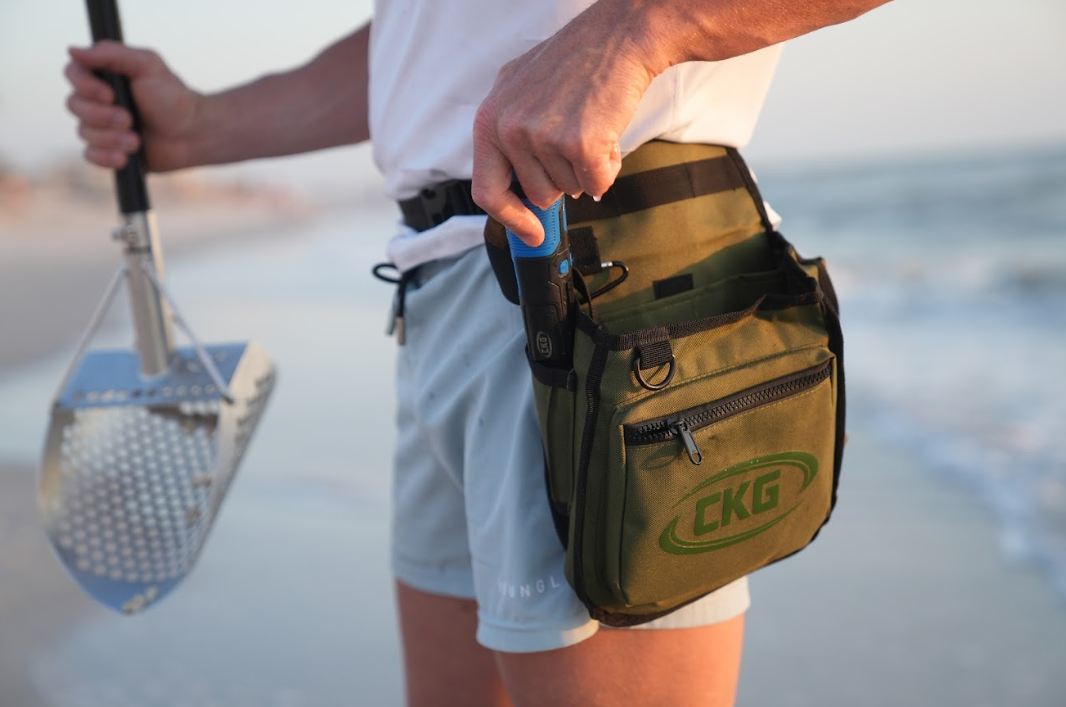Treasure hunting with a metal detector can be safely called not only an exciting hobby, but also a fairly active form of recreation. In order for your trips to be as comfortable and effective as possible, it is important not only to have a good device, but also to take a responsible approach to the selection of equipment. Among the key elements of equipment, it is imperative to highlight the backpack. This accessory must be, first of all, comfortable, functional and durable to withstand the weight of the equipment and related attributes. Therefore, below we will consider in more detail what a metal detector bag should be and what to pay attention to when choosing.
Why is the right backpack important?
Often, beginners initially use ordinary sports or tourist backpacks. However, over time, it becomes clear that specialized bags for a metal detector make trips more comfortable, help save energy and protect equipment from damage. A good backpack for a metal detector:
-
reduces the load on the back and shoulders;
-
is convenient for organizing things;
-
is resistant to moisture and dirt;
-
allows you to quickly get the necessary tool;
-
keeps the metal detector and accessories safe.
Main criteria for choosing a bag for carrying a metal detector
To ensure that your purchase serves you faithfully for as long as possible and is truly convenient, we recommend that you consider the following characteristics when choosing.
Size and volume
The bag for the metal detector should accommodate the device itself (if it can be disassembled), as well as a shovel, pinpointer, spare batteries and other small items. The optimal volume is from 25 to 40 liters, depending on the duration of the trips and the amount of equipment.
Convenient carrying system
Pay attention to the presence of an anatomical back, adjustable straps and a waist belt. Thanks to this, the load is noticeably reduced, which is the key to comfort when wearing a backpack for several hours. Also, the presence of ventilation on the back will be an indisputable advantage. Compartments and pockets
It is ideal if the metal detector bag has a separate compartment or fixing straps for the rod and coil. Side pockets for a bottle of water are also convenient, while front pockets, for example, for a pinpointer or finds. It is desirable to have small compartments inside for such small items as batteries, cables and other accessories.
Durability and water-repellent materials
During use, your backpack will inevitably be subjected to various loads, because it is placed on the ground, pulled through bushes, and it can also get wet in the rain. It is better to give preference to models made of thick nylon or polyester with water-repellent impregnation. It is also worth noting that the presence of a reinforced bottom is important.
Compatibility with equipment
If you are using a folding or disassemblable metal detector, make sure that it fits inside without problems. Some models of metal detector bags are already equipped with additional special compartments for the coil and handle.
Why do you need a specialized backpack?
There is a wide range of backpacks on the modern market that are designed specifically for treasure hunters. They are distinguished by a carefully thought-out layout for a metal detector, pinpointer, finds and tools. Among the advantages of purchasing are:
-
simplified organization of contents;
-
built-in mounts for a coil and shovel;
-
reliable protection from dirt and dust;
-
compact but roomy designs.
However, it is worth noting the disadvantage, which in this case also could not do without. Such backpacks can be more expensive than regular tourist ones. If the budget is limited, you can choose a universal backpack, but it is still advisable to start from the criteria we discussed earlier when choosing.
Additional tips and recommendations
When choosing a bag for a metal detector, you may find the following recommendations useful and relevant:
-
Check the weight of the backpack when empty. It should be light so as not to add unnecessary load during a long search. Remember that tools and personal items will also be added to it.
-
Think over a storage system for finds. It is better to use a separate removable bag or an inner pouch to separate dirty or wet items from the rest of the contents.
-
If you are working in rainy or humid conditions, take a backpack with a built-in rain cover or buy a waterproof case. This will protect not only the backpack itself, but also the expensive equipment inside.
In conclusion, it is worth noting that choosing a backpack is not just a matter of comfort, but an important part of preparing for the search. A well-chosen model will help you focus on the main thing, namely, on finding interesting and valuable finds, and not on fatigue and inconvenience.

